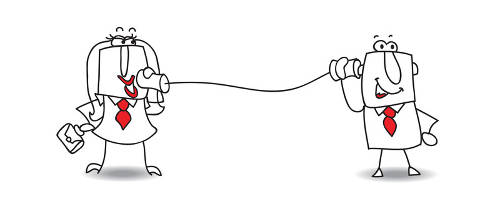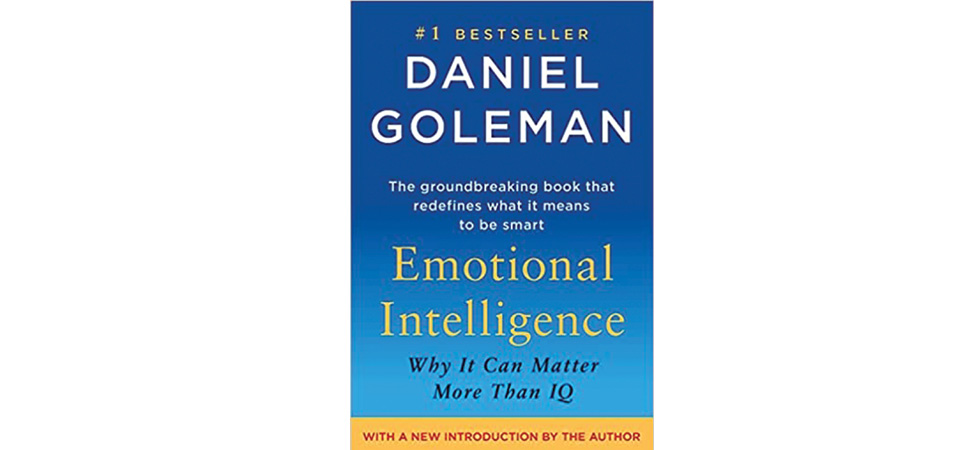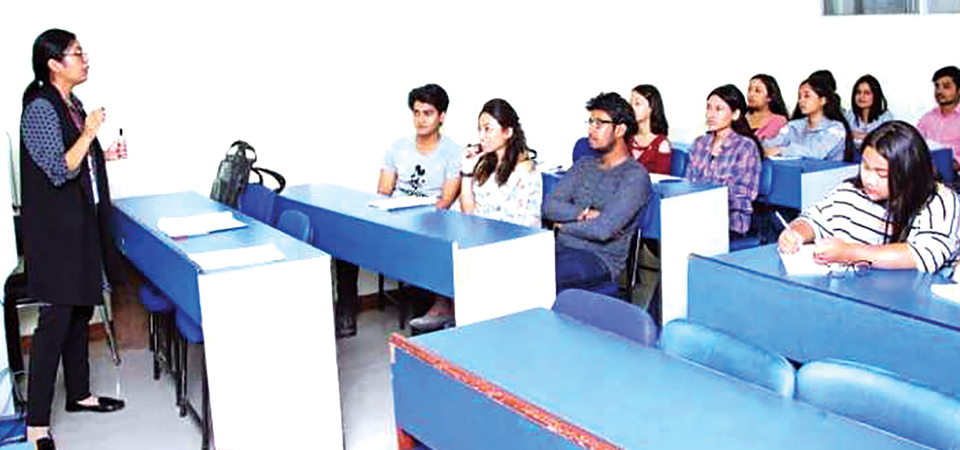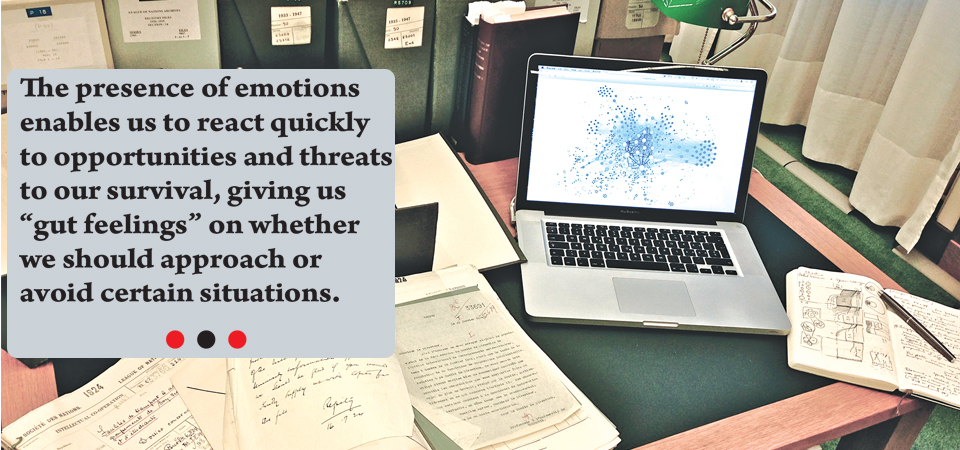How To Overcome Stage Fright

Pushpa Priya
Stage performance and anxiety are natural phenomena that occur in many people. Stage fright is not a mental disorder; rather it is a normal reaction to stressful situation. Most people are fear-stricken while appearing before an audience.
Even successful people have reported pre-stress. Before becoming a civil rights leader, Mahatma Gandhi struggled with public speaking skills. Similarly, Singer Barbra and many celebrities, leaders, academicians went through the same experience while presenting their acts before audiences.
What intrigued me to pick up this issue is noticing many students and intellectual aspirants fail to present his/her views or contents of deliverance before a crowd of listeners and watchers. They lack mass-facing skills. Numerous ways are followed to overcome stage fear that results in overall development of an individual.
A solution for this problem can be found in knowledge of contents, therapy in condition of chronic performance anxiety and life style changes.
The first and foremost ways to overcome or remove stage fear is good command over the subject matter. If one has a good grasp of contents, then he/she will have no trouble in facing audiences.
One should prepare the contents in advance and reading it aloud and should hear his/her own voice. In addition to it, practice is more important to boosting confidence. Knowing the contents help but cannot eradicate the problem; and, therefore, one should do consistent practice to furnish presentation.
One should comprehend the speech inside and out and be aware about its objective rather than memorizing the contents of speech. In this way, one can explain in other ways if forgets what to say further; and it also prevents one from panic. Similarly, one should practice yoga, meditation, breathing exercises regularly to calm the mind that removes all kinds of fear inside and out.
In the same way, positive mindset is an essential quality to conquer fear. An act of giving positive reinforcements acts magically in boosting confidence. Instead of saying, “what if I forget contents of my presentation?” try, “I will never really know what the audience will think of me, but I am going to give mark to my performance with best results.
In other words, one needs to practice positive affirmation by positive self-talk every time that train subconscious mind to act accordingly. A person appearing before an audience should work on oneself to bring positive outcomes.
If the performer is smiling, having interest on his topic of deliverance and maintaining eye contact with audiences, everyone will be interested to listen. Being yourself is the best and it helps one to be more natural and meaningful. Performers start being artificial and nervous in process of imitating others’ style.
Most importantly, positive visualization helps in effectual presentation. One should imagine delivering effective presentation filled with humour, confidence, knowledge and wisdom in front of mass. In this sense, presenter should always visualize success by focusing on strength and handling challenging situations.
Similarly, the presenter should focus fear to true purpose; that is, intention or objectives behind message to audiences. The performer should refuse any thought that brings distraction. For example, the thoughts that create self-doubt and low self-esteem should be avoided. Stage fear results in lower someone’s self-esteem or self-confidence and that hampers career growth.
People experiencing chronic performance anxiety can go for therapy where expertise will train with some mental strategies to reduce stage fright. Furthermore, life style changes act as a miracle in performance anxieties.
Yoga, meditation, breathing exercises should be adopted in daily life style. Lowering of caffeine intake, remain hydrated, having healthy food before performance may have positive results. In the same way, sound sleep the night before performance is equally important. The performer should stop being self-critical. For instance, one should not think about self being judged by audience around. Thinking about such stuffs are the hindrances. Breathing exercise boosts one with enormous energy filled with positiveness and helps in healing all kinds of fears and doubts. Nervousness takes one’s balance and it carries with by fast and short breaths. One need to go through deep breaths in and out before going to the stage. It really calms the mind and uplifts the level of energy in positive direction. In fact, being aware of breath gives control over one’s nerves. It also adds power and strength to voice. Moreover, principle of acceptance should be adopted in daily lives.
Performers should not fight with stage fear rather work with it by accepting anything that comes along peacefully. The thing audience watch is patience and calmness. So the performer should not be panic on challenging situation rather accept it calmly and starts being natural by giving up trying to be perfect that reward him/her with better results.
Above all, parents' motivation is must that determines the performer performance in stage. They should teach their children to believe in their own capabilities and teach them to be confident and optimistic.
Let the children visualize the stage full of audiences applaud after a fantastic performance. Such image in mind will go a long way in his/her self-esteem. Moreover, the parents should also train the children about time management from the early childhood days.
It is essential to reach venue of the performance well in advance. Being late results in nervousness and anxiety. Parents should give nutritious and healthy diet like fresh vegetables and fruits that keeps the child feel light and confident before performing on the stage.
Coffee and other caffeinated drinks should be avoided. Moreover, parents should teach the child to turn her/his palms up, take a deep breath in, and exhale the “T” sound, “t,t,t…” this can assist child with calm and stable mind before starting a presentation.
According to Forbes, parents should encourage their child to sit up straight; close his/her eyes while focusing on his/her breathing; and bring attention back to breathing each time his/her mind wanders. This meditation should be practiced and it will teach the child to breathing techniques that he/she can rely on keep calm during presentation.
(The writer is an English lecturer at Global College of Management)
Recent News

Do not make expressions casting dout on election: EC
14 Apr, 2022
CM Bhatta says may New Year 2079 BS inspire positive thinking
14 Apr, 2022
Three new cases, 44 recoveries in 24 hours
14 Apr, 2022
689 climbers of 84 teams so far acquire permits for climbing various peaks this spring season
14 Apr, 2022
How the rising cost of living crisis is impacting Nepal
14 Apr, 2022
US military confirms an interstellar meteor collided with Earth
14 Apr, 2022
Valneva Covid vaccine approved for use in UK
14 Apr, 2022
Chair Prachanda highlights need of unity among Maoist, Communist forces
14 Apr, 2022
Ranbir Kapoor and Alia Bhatt: Bollywood toasts star couple on wedding
14 Apr, 2022
President Bhandari confers decorations (Photo Feature)
14 Apr, 2022










